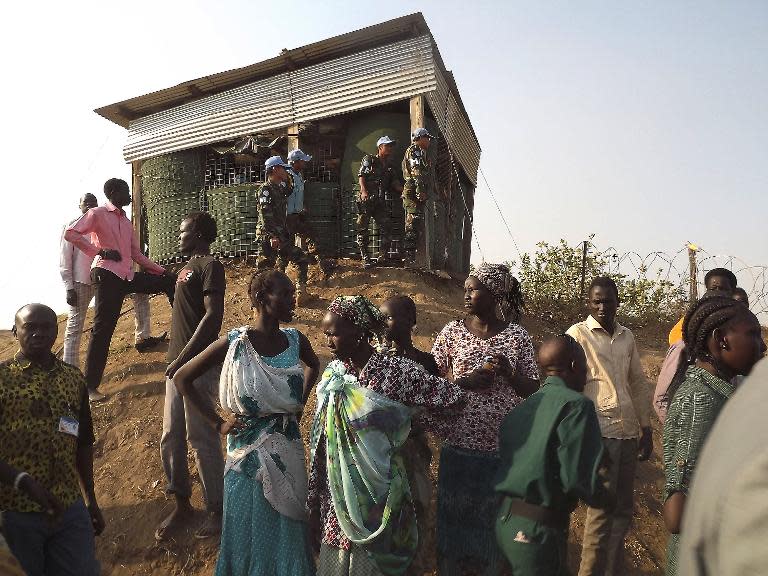Fear of civil war: violence spreads in South Sudan

The United Nations warned that violence was spreading in South Sudan as the United States had to evacuate Americans and other foreigners due to heavy fighting in the world’s newest country. Britain also withdrew embassy staff from the strife-plagued country and Washington said more evacuation flights could follow as fears grow that the country, which gained independence from Sudan in 2011, could slide back into civil war. Hundreds of people have been killed and thousands more terrified civilians have fled their homes to seek shelter at UN bases since fighting broke out on Sunday. The United States used two C-130 military transport planes and a chartered plane to fly 150 Americans and U.S. and foreign diplomats out of the country, the State Department said. “The security situation got ugly. There was shooting at the airport,” a U.S. Defense Department official said on condition of anonymity. State Department deputy spokeswoman Marie Harf said the United States was “deeply alarmed” by the outbreak of violence in the country. “We urge the country’s political leaders to refrain from any actions that could escalate an already tense situation or fuel violence,” she added. Americans have continued to be urged to leave the country and the State Department is “working to arrange additional transportation to meet demand if needed,” Harf said. U.N. spokesman Martin Nesirky said on Wednesday that at least 19 civilians had been killed in new clashes between rival army factions that have now spread beyond the capital Juba. Nesirky said the fighting had taken place in Bor, the capital of the eastern state of Jonglei, and tensions were rising in other states. “Hundreds of civilians have poured into our camp on the outskirts of the city, there are now over 1,000, and the situation in Bor is very tense,” said Joe Contreras, spokesman for the UN mission in South Sudan. The UN also reported clashes in the town of Torit, the capital of Eastern Equatoria state. Fighting sparked by ‘misunderstanding’ The violence was sparked by a coup attempt that President Salva Kiir said on Sunday was launched by his arch-rival, former Vice President Riek Machar, whom he sacked in July. Kiir said he was ready to “sit down” with Machar to try to resolve the crisis. But in comments published on Wednesday, Machar denied any attempt to overthrow the president, instead accusing Kiir of using the violence as a pretext to eliminate any challengers. “What happened in Juba was a misunderstanding between the presidential guards within their division, it was not a coup attempt,” he told the Paris-based website Sudan Tribune in his first public comments since fighting broke out. Many residents of the capital have spent the days since the violence erupted barricaded in their homes, too afraid to move. Others took advantage of lulls in the sporadic and often fierce fighting to flee to safer areas, including UN bases, despite Kiir’s pleas to return to their homes. UN peacekeeper chief Hervé Ladsous told the UN Security Council that between 400 and 500 bodies had been brought to hospitals in Juba since fighting broke out, while another 800 people were injured. “The number of casualties is obviously high,” said Gerard Araud, the president of the UN Security Council, without confirming the death toll. Fighting along ethnic lines The fighting has exposed the bitter conflicts in the arms-stricken country. Kiir and Machar belong to different ethnic groups and fought on opposite sides in Sudan’s 1983-2005 civil war. The South Sudanese government said 10 key figures, many of them former ministers, had been arrested in a crackdown on suspected coup plotters. Kiir said a powerful military commander, Peter Gadet – who rebelled in 2011 but then rejoined the army – had mutinied again and carried out attacks in Jonglei in support of Machar. Several regional airlines resumed flights at Juba airport. Long lines of aid workers and expatriates lined up to catch the first flight they could out of the country. Others left by bus for Uganda. “Sad/ambivalent to leave a place I love in turmoil,” American aid worker Erin Polich wrote on Twitter after arriving in Kenya.



